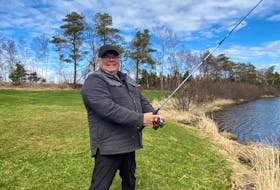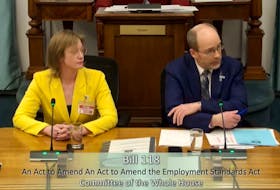First Nations have rejected federal Fisheries Minister Bernadette Jordan’s offer for a regulated moderate livelihood fishery.
“Overall the chiefs feel insulted and disrespected,” Bruce Wildsmith, lawyer for the Assembly of Nova Scotia Mi’kmaq Chiefs, said Wednesday.
Jordan's offer is the first effort by a federal fisheries minister to draft the regulatory framework to implement the moderate livelihood right acknowledged by the Supreme Court of Canada in its 1999 Marshall decision.
“This plan will support individuals, their families, and their communities,” reads Jordan’s statement.
“It’s a path that is flexible, adaptable, and based on three key principles: implementation of First Nations Treaty rights, conservation and sustainability of fish stocks, and transparent and stable management of the fishery.”
Jordan is offering to negotiate agreements with individual First Nations that would see her department issue moderate livelihood licences to bands for joint management. Room in the fishery will be made by buying up existing commercial licences or from non-active licences held by DFO.
The caveat to this offer is that the moderate livelihood licences would have to be fished during the existing commercial seasons in the area they are issued.
“Seasons ensure that stocks are harvested sustainably and they are necessary for an orderly, predictable, and well-managed fishery,” reads Jordan’s statement.
“In effort-based fisheries such as lobster, seasons are part of the overall management structure that conserves the resource, ensures there isn’t overfishing, and distributes economic benefits across Atlantic Canada.”
This caveat brought the widespread support of commercial fishing associations, which have stated that they would accept a moderate livelihood fishery so long as it was regulated by the federal government and takes place during the same seasons they are required to fish.
“We support Indigenous fishers’ rights to sell their catch, as they do with licences and quotas that they already have today,” said Colin Sproule, president of the Unified Fisheries Conservation Alliance in response to Jordan’s statement.
“But we are opposed to anyone, Indigenous or non-indigenous fishing outside federal and provincial regulations related to sizes, seasons and quotas.”
The Supreme Court did give the fisheries minister the right to regulate the moderate livelihood fishery.
“The Court did not hold that the Mi’kmaq treaty right cannot be regulated or that the Mi’kmaq are guaranteed an open season in the fisheries,” reads the clarification to its R vs. Marshall by the Supreme Court known as Marshall II.
“… The Court was thus most explicit in confirming the regulatory authority of the federal and provincial governments within their respective legislative fields to regulate the exercise of the treaty right subject to the constitutional requirement that restraints on the exercise of the treaty right have to be justified on the basis of conservation or other compelling and substantial public objectives.”
But Wildsmith, who represented Donald Marshall Jr. in the trial, pointed out Tuesday that the Supreme Court also said that because regulations constitute an infringement on the Mi’kmaq right, the minister has to consult with First Nations and justify the infringement.
“And there was no consultation,” said Wildsmith of the lead up to the announcement of a regulatory framework.
“The second (requirement of the Supreme Court) is that (the federal government) has to seek the minimal infringement of the right. There’s no evidence of that. The third thing the court told them is that they must accomodate the right if they are going to infringe on it. So there is no minimal infringement, no accommodation and no consultation.”
Jordan said fisheries officers and Coast Guard would be on the water in larger numbers this season to enforce the Fisheries Act, under which she is offering to regulate the moderate livelihood fishery.
Wildsmith said First Nations would be returning to the water to implement their own moderate livelihood plans and that if charges get laid it will all end up back in court.









